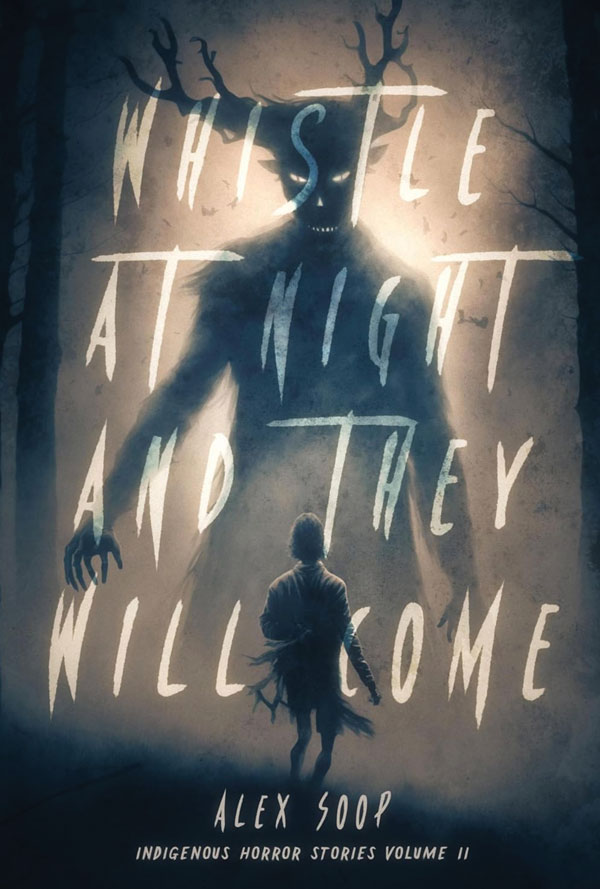In English our stories are known as myth, fairy-tale or legend. In our language they are truth,” states Eugene Brave Rock in the foreword to Alex Soop’s Whistle at Night and They Will Come. These apt and foreboding words encompass the short stories and novellas that follow in a collection that contains words of myth and legend with a spotlight blaring bright on their truth.
“When I was a kid,” writes Soop in an introductory essay recalling his childhood on the Kainai Nation, “my grandmother and other Blackfoot Elders warned us kids about things that might harm us, including the taboos of whistling at night. When I asked them why whistling is taboo, I remember being told ‘They will come.’ I was afraid to ask who ‘they’ might be, but to this day I suspect they meant the ‘spirits’…. [This taboo] played a big role in instilling fear that served as inspiration for my stories in this book. I trust that these stories will indeed evoke a sense of fright in you, or at least of spirits awakening.”
These stories do just that. They show us what happens when we disregard the little voice inside that tells us what we’re about to do is wrong. When we listen to our kokums and moshums but not enough to follow their wisdom, we get ourselves into trouble. This book makes that trouble real—with a Skinwalker who torments a boy after dark, a dead girlfriend who comes to a young man who wants one more night with her, a trio of cousins on the rez playing a deadly game of hide-and-seek. A sense of foreboding lurks on every page, pulling the reader along to see how these characters get out of the situations they got themselves into, and what happens when they can’t.
In this second volume of “Indigenous horror stories,” following the earlier Midnight Storm, Moonless Sky, Soop imbues every page with the creepiness of the unexplainable and the silent, supernatural forces that shiver into the realm of the everyday. Yet his characters are also bright and often funny, bringing a levity that counterbalances the darkness.
The passing down of story and lesson is a tradition of “tremendous power” embedded in the fabric of Indigenous storytelling—the purpose clear and serving those who listen. Variously the stories and characters in this book strive toward that tradition and bring with them contemporary ideas that infuse a sense of fun and fresh air. But what happens when supernatural forces that were once found only in story burst into our real lives…? This is the reality in Whistle at Night and They Will Come. It’s a fun read that I recommend saving for a sunny day—unless you enjoy being scared, then read it under the covers with a flashlight.
Francine Cunningham is the author of God Isn’t Here Today.
_______________________________________


